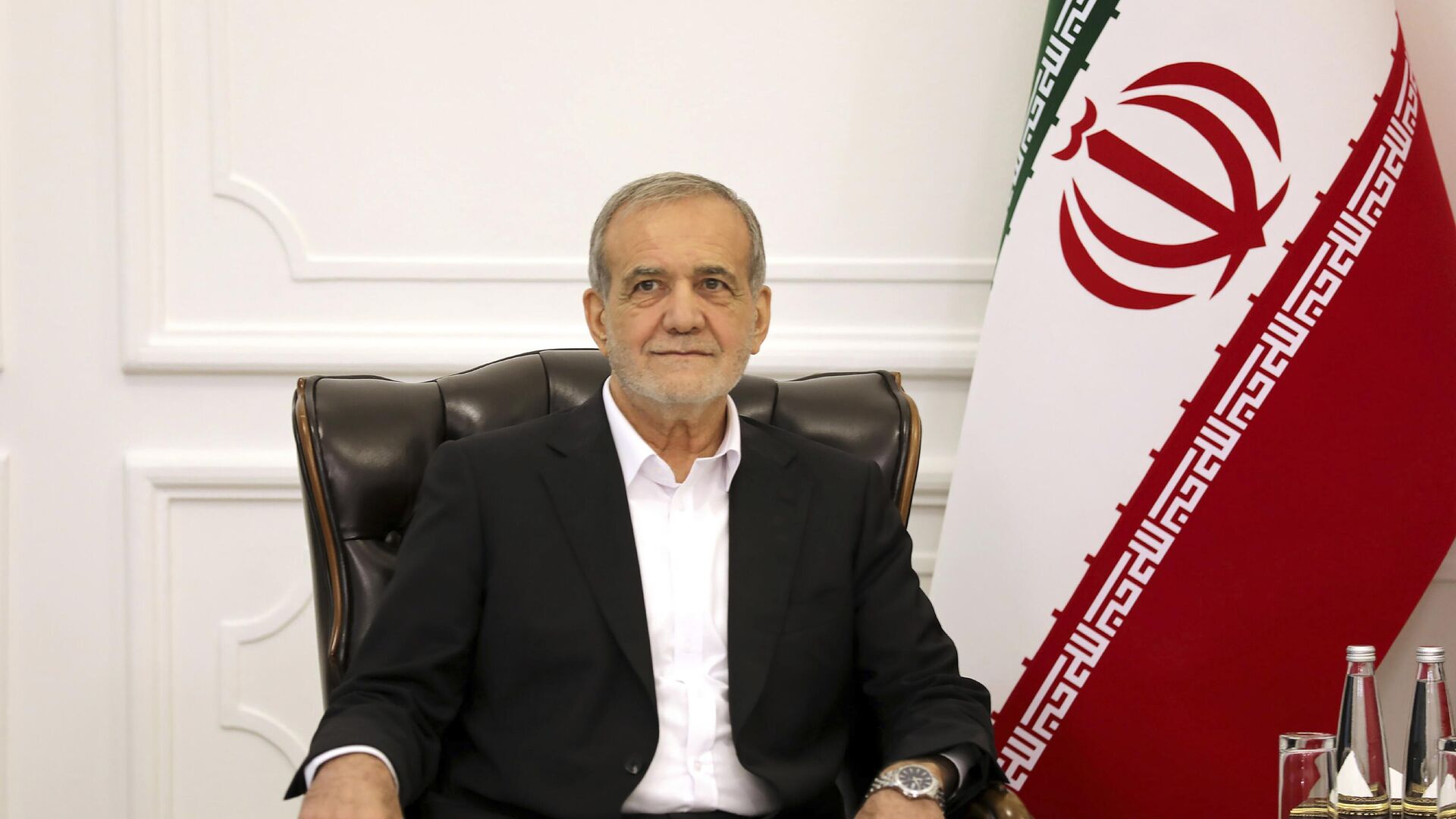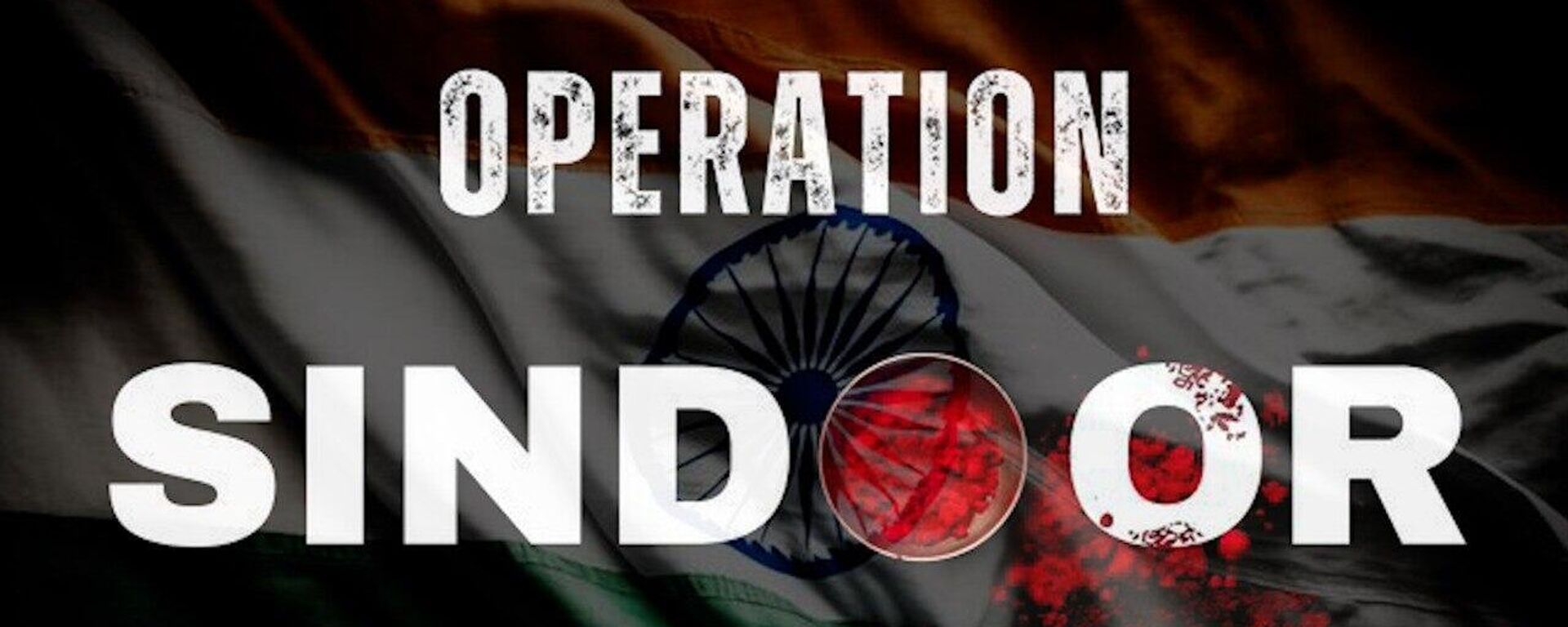https://sputniknews.in/20250609/irans-potential-role-in-india-pakistan-mediation-9262430.html
Iran’s Potential Role in India-Pakistan Mediation
Iran’s Potential Role in India-Pakistan Mediation
Sputnik India
Tensions have been simmering between India and Pakistan since April 22, when terrorists killed 26 people, mostly civilians, in the resort town of Pahalgam in... 09.06.2025, Sputnik India
2025-06-09T20:28+0530
2025-06-09T20:28+0530
2025-06-09T20:28+0530
sputnik opinion
islamic revolutionary guard corps (irgc)
islamic revolution guards corps (irgc)
masoud pezeshkian
shehbaz sharif
pakistan
iran
india
islamabad
new delhi
https://cdn1.img.sputniknews.in/img/07e9/06/08/9253813_0:0:3072:1728_1920x0_80_0_0_6a8e9b2c4fdbc4514fd1a0b2b9dbc89b.jpg
Iranian President Masoud Pezeshkian offered to broker peace between warring neighbours, India and Pakistan, during a conversation with Pakistan Prime Minister Shehbaz Sharif during the weekend.However, the likelihood of Iran successfully mediating between India and Pakistan remains limited due to a confluence of historical, geopolitical, and diplomatic challenges, according to Dr. Shubhda Chaudhary, the founder of the Middle East Insights Platform, a New Delhi-based strategic affairs think tank.While President Pezeshkian's recent offer to mediate reflects Iran's aspiration to play a stabilising role in South Asia, several structural impediments undermine the feasibility of such an initiative, she added.For instance, the Iranian President has publicly signalled solidarity with Pakistan in the face of terrorism. On November 22, 2024, he condemned a terrorist attack in Pakistan that resulted in numerous casualties and extended his condolences to the government and people of Pakistan. He emphasised that "terrorism in all its forms is condemned" and reiterated that "the Islamic Republic of Iran, as in the past, will stand by the friendly and brotherly country of Pakistan." Such statements reflect Iran's strategic interest in maintaining cordial ties with its eastern neighbour, the geopolitical pundit explained.Khamenei holds decisive sway over key levers of state power, including the Islamic Revolutionary Guard Corps (IRGC), the military, and nuclear policy. Moreover, the president cannot independently appoint ministers to crucial portfolios such as foreign affairs, intelligence, and oil without the Supreme Leader's approval. As such, any Iranian attempt at high-level mediation in South Asia would require the tacit or explicit endorsement of Khamenei, making presidential overtures largely symbolic unless backed by institutional consensus, she highlighted.Furthermore, India has historically resisted any form of external mediation on bilateral issues with Pakistan, particularly the Kashmir dispute. This stance is grounded in the 1972 Shimla Agreement, which emphasises the resolution of disputes through bilateral dialogue, the strategic affairs expert stressed.Leaders across India's political spectrum, including the Congress Party members like Shashi Tharoor, have reiterated that any engagement with Pakistan must be contingent upon concrete actions, particularly the dismantling of what India calls a "visible" terror infrastructure—a demand that Pakistan has either denied or deflected, Chaudhary said. Iran's offer, thus, directly conflicts with India's well-established diplomatic position, the observer pointed out.The 2025 crisis caused by the Pahalgam terrorist attack, which witnessed renewed ceasefire violations within hours of de-escalation efforts on May 10, once again revealed the fragility of peace mechanisms in the region. The India–Pakistan relationship remains deeply burdened by historical baggage, nationalist domestic politics, and deep-seated mistrust, none of which any third-party actor, including Iran, has been able to overcome thus far, she stated.Adding further complexity are Iran's own strained ties with Pakistan. Iran has long accused Pakistan of harboring militant groups such as Jaish al-Adl, responsible for attacks on Iranian security forces in the border region of Sistan and Baluchestan. In January 2024, Iran conducted missile and drone strikes on alleged militant bases within Pakistani territory, prompting retaliatory action from Pakistan and briefly pushing the two nations into a diplomatic crisis, the international relations specialist highlighted.These dialogues have sustained momentum on strategic infrastructure projects such as the Chabahar Port and the International North–South Transport Corridor (INSTC), both of which are critical to Iran–India connectivity and trade interests, she added."The Chabahar Port project, which connects India to Afghanistan and Central Asia via Iran, remains a cornerstone of their bilateral cooperation," Chaudhary emphasised.While President Pezeshkian's overtures toward mediation between India and Pakistan reflect a diplomatic gesture rooted in regional stability concerns, they are significantly circumscribed by both Iran's internal political architecture and the complexities of South Asian geopolitics, she concluded.
https://sputniknews.in/20250528/operation-sindoor-indias-political-leaders-unite-against-cross-border-terrorism-9203700.html
pakistan
iran
india
islamabad
new delhi
delhi
tehran
Sputnik India
feedback.hindi@sputniknews.com
+74956456601
MIA „Rossiya Segodnya“
2025
Pawan Atri
https://cdn1.img.sputniknews.in/img/07e6/0c/13/139630_147:0:831:684_100x100_80_0_0_8fa2b25903e7787fe6a2698552c167df.png
Pawan Atri
https://cdn1.img.sputniknews.in/img/07e6/0c/13/139630_147:0:831:684_100x100_80_0_0_8fa2b25903e7787fe6a2698552c167df.png
News
en_IN
Sputnik India
feedback.hindi@sputniknews.com
+74956456601
MIA „Rossiya Segodnya“
Sputnik India
feedback.hindi@sputniknews.com
+74956456601
MIA „Rossiya Segodnya“
Pawan Atri
https://cdn1.img.sputniknews.in/img/07e6/0c/13/139630_147:0:831:684_100x100_80_0_0_8fa2b25903e7787fe6a2698552c167df.png
islamic revolutionary guard corps (irgc), islamic revolution guards corps (irgc), masoud pezeshkian, shehbaz sharif, pakistan, iran, india, islamabad, new delhi, delhi, tehran
islamic revolutionary guard corps (irgc), islamic revolution guards corps (irgc), masoud pezeshkian, shehbaz sharif, pakistan, iran, india, islamabad, new delhi, delhi, tehran
Iran’s Potential Role in India-Pakistan Mediation
Tensions have been simmering between India and Pakistan since April 22, when terrorists killed 26 people, mostly civilians, in the resort town of Pahalgam in Kashmir.
Iranian President Masoud Pezeshkian offered to broker peace between warring neighbours, India and Pakistan, during a conversation with Pakistan Prime Minister Shehbaz Sharif during the weekend.
"The Islamic Republic welcomes any measures and efforts towards establishing lasting peace between Pakistan and India, and it can play a mediating role to that aim," Pezeshkian told Sharif during a phone conversation, as quoted by Tasnim news agency.
However, the likelihood of Iran successfully mediating between India and Pakistan remains limited due to a confluence of historical, geopolitical, and diplomatic challenges, according to Dr. Shubhda Chaudhary, the founder of the Middle East Insights Platform, a New Delhi-based strategic affairs think tank.
While President Pezeshkian's recent offer to mediate reflects Iran's aspiration to play a stabilising role in South Asia, several structural impediments undermine the feasibility of such an initiative, she added.
For instance, the Iranian President has publicly signalled solidarity with Pakistan in the face of terrorism. On November 22, 2024, he condemned a terrorist attack in Pakistan that resulted in numerous casualties and extended his
condolences to the government and people of Pakistan. He emphasised that "terrorism in all its forms is condemned" and reiterated that "the Islamic Republic of Iran, as in the past, will stand by the friendly and brotherly country of Pakistan." Such statements reflect Iran's strategic interest in maintaining cordial ties with its eastern neighbour, the geopolitical pundit explained.
"An equally critical factor limiting Iran's mediatory potential lies in its domestic power structure. While President Pezeshkian may articulate a pragmatic and conciliatory foreign policy vision, he remains institutionally constrained by the authority of Supreme Leader Ayatollah Ali Khamenei. Under Article 113 of the Iranian Constitution, the president is the highest elected official and head of the executive branch, tasked with implementing the constitution and managing both domestic and foreign affairs. But this authority is subordinate to the Supreme Leader, who exercises ultimate control over Iran's foreign policy, security apparatus, and military institutions," Chaudhary underlined.
Khamenei holds decisive sway over key levers of state power, including the Islamic Revolutionary Guard Corps (IRGC), the military, and nuclear policy. Moreover, the president cannot independently appoint ministers to crucial portfolios such as foreign affairs, intelligence, and oil without the Supreme Leader's approval. As such, any Iranian attempt at high-level mediation in South Asia would require the tacit or explicit endorsement of Khamenei, making presidential overtures largely symbolic unless backed by institutional consensus, she highlighted.
Furthermore, India has historically resisted any form of external mediation on bilateral issues with Pakistan, particularly the Kashmir dispute. This stance is grounded in the 1972 Shimla Agreement, which emphasises the resolution of
disputes through bilateral dialogue, the strategic affairs expert stressed.
Leaders across India's political spectrum, including the Congress Party members like Shashi Tharoor, have reiterated that any engagement with Pakistan must be contingent upon concrete actions, particularly the dismantling of what India calls a "visible" terror infrastructure—a demand that Pakistan has either denied or deflected, Chaudhary said. Iran's offer, thus, directly conflicts with India's well-established diplomatic position, the observer pointed out.
The 2025 crisis caused by the Pahalgam terrorist attack, which witnessed renewed ceasefire violations within hours of de-escalation efforts on May 10, once again revealed the fragility of peace mechanisms in the region. The India–Pakistan relationship remains deeply burdened by historical baggage, nationalist domestic politics, and
deep-seated mistrust, none of which any third-party actor, including Iran, has been able to overcome thus far, she stated.
Adding further complexity are Iran's own strained ties with Pakistan. Iran has long accused Pakistan of harboring militant groups such as Jaish al-Adl, responsible for attacks on Iranian security forces in the border region of Sistan and Baluchestan. In January 2024, Iran conducted missile and drone strikes on alleged militant bases within Pakistani territory, prompting retaliatory action from Pakistan and briefly pushing the two nations into a diplomatic crisis, the international relations specialist highlighted.
"Despite these limitations, President Pezeshkian has demonstrated a willingness to engage constructively with India. His interactions with Indian leadership—including a phone call in April 2025 following the Pahalgam terrorist attack, and bilateral engagements at the October 2024 BRICS Summit—have reinforced shared concerns about terrorism and regional instability," the analyst stated.
These dialogues have sustained momentum on strategic infrastructure projects such as the Chabahar Port and the International North–South Transport Corridor (INSTC), both of which are critical to Iran–India connectivity and trade interests, she added.
"The Chabahar Port project, which connects India to Afghanistan and Central Asia via Iran, remains a cornerstone of their bilateral cooperation," Chaudhary emphasised.
While President Pezeshkian's overtures toward mediation between India and Pakistan reflect a diplomatic gesture rooted in regional stability concerns, they are significantly circumscribed by both Iran's internal political architecture and the complexities of South Asian geopolitics, she concluded.



